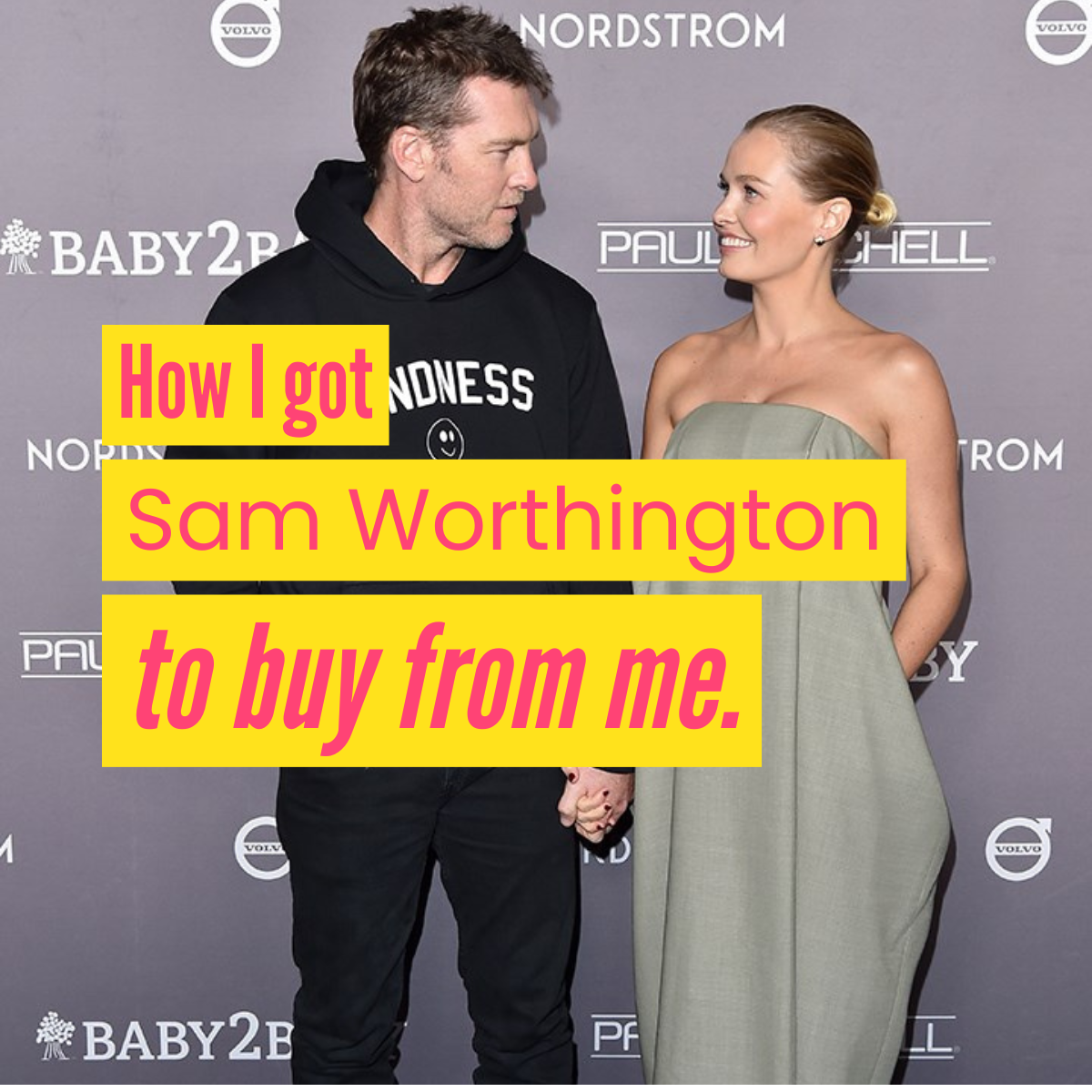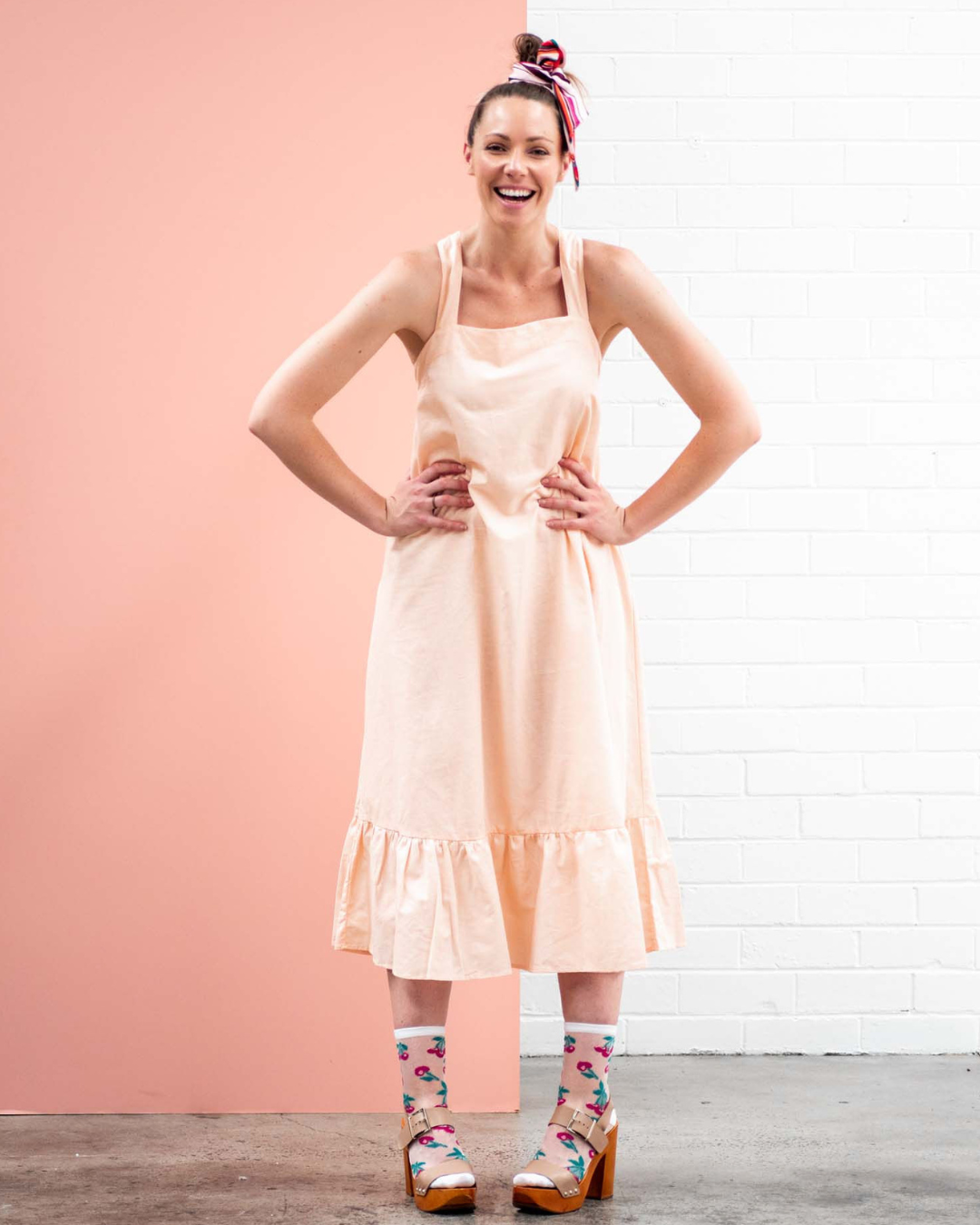If you've not yet heard the term, 'swapping' in fashion, you're missing out. It could be my experience at an all-girls boarding school that embedded my love of raiding my friends' wardrobes, or it could be my deep-seated love of sustainability; either way, I'm a big fan of the concept of moneyless clothes-exchanging.
The thrill of rummaging through another woman's trash to make it my treasure is a very satisfying hunt, and it's also a very inexpensive way to update my wardrobe. Some of my favourite wardrobe staples belonged to my best friends, and I know the pieces I fell out of love with and passed onto them, get high rotation too.
Kate Luckins shares my love of all things fashion, and she's an advocate for sustainability. Her Melbourne-born business, The Clothing Exchange was founded in 2004, and within just two years, the L’Oreal Melbourne Fashion Festival welcomed one of Kate's exchange events onto their event calendar, and for a good reason too. According to YouGov, four out of 10 people throw unwanted fashion items straight in the bin, rather than trying to repair or recycle them, and it equates to an average of 23kg of textiles and clothing every year.
Kate is passionate about changing such wasteful habits, and through The Clothing Exchange, she's actively changing the industry too. Her swapping events are now regular must-do's for sustainability enthusiasts and fashion swappers alike across Australia, and what started as a small community, is now a nationwide thrifting-tribe.
Kate stepped away from her busy scheduling planning The Clothing Exchange's next swap to share the ins and outs of swapping and shopping...
What does a week in your shoes look like?
Since founding The Clothing Exchange in 2006, my weeks have varied greatly. Some weeks are filled with swapping, like in the early days when I was working it all out and rifling through my own wardrobe to find treasures to donate, or when we planned our National Swap Tour back 2013. Some weeks are quieter, as we are all volunteers, and sometimes our day-jobs must take centre-stage. If it’s a lucky week, I’ll have an opportunity to present the swap story or contribute to a panel.
Is momentum growing for clothing swaps?
The momentum has been great this year. Kirsten is very busy as she is our National Co-Ordinator and she supports our host Susannah in Tasmania, and our host Stacey in Melbourne, as well as running events in Sydney. Tapping into the ‘war on waste’ has helped spread the word that we are still swapping and doing a mighty fine job of it.
You published a book in 2010 titled, ‘Fashion Re-consumption: developing a sustainable fashion consumption practice influenced by sustainability and consumption theory’. Firstly, amazing! Secondly, when you look back on your research and what you predicted, how do you feel?
When I wrote about swapping as my master’s research thesis, I was testing an idea. Nothing prepared me for how it would evolve and how many collaborators would jump on board and bring another dimension to the clothing exchange concept. I was motivated by reducing fashion waste, so along the way, I learned about scaling up, spreading to other states and how to magnify the positive impact we were having on the environment.
What keeps you up at night?
I’m a pretty sound sleeper! But as a mother of two, I’m pretty darn concerned about the state of the earth they will inherit.
How did your career in fashion start?
Like it does with most people – with a keen interest in fashion. I was seeking to reconcile my desire for beautiful clothing with my ecological concerns. I started researching what to do at university and then working on a swapping solution.
If money or logistics weren’t prohibitive, what’s one problem you would solve tomorrow and why?
I’d just put a stop to climate change, so we could all continue to enjoy what we value now for future generations. The changing climate is already affecting us all in so many ways, and unless we can address it, our future remains uncertain. Some more than others, as the impact of climate change is indiscriminate.
Do you think a circular fashion industry is a realistic possibility in our lifetime?
Absolutely. We just need our government to create supportive legislation so there is a more urgent imperative to drive change in the fashion industry. And consumer demand can play a role too. We need to vote for the future we want by spending our dollars on the companies that are leading the shift towards a circular fashion industry.
For those easing into the ethical and sustainable movement after years of fast fashion binging, what top three tips can you offer?
Firstly, buy one thing you love over ten things that you ‘kind-of like’ and wear it ‘til it falls apart. Secondly, borrow stuff for special occasions from a friend. You often don’t need to buy something new for a one-off event. There are hire services too! Lastly, swap before you hit the shops, or buy secondhand clothes online or from vintage stores. You end up with something unique without the credit card debt too.
Should we all just stop buying clothes because there’s already enough out there?
I’m never going to advocate for deprivation! I think we need to be responsible about how we buy clothes and check why we are buying them. We need to purchase garments that have been designed to be sustainable or are coming as close as possible. I think secondhand clothes shopping is a big part of a sustainable fashion future, whether you get them swapping or op-shopping, but only some clothes are high enough quality to last the distance. Unfortunately, a lot of fast fashion just falls apart at the seams. When buying new things with a sustainable mindset, we need to invest in high-quality garments we love to repair, adapt and ultimately, wear to death. Ideally, these garments are made by the pioneers of the circular fashion system.
To find out more about the power of swapping and The Clothing Exchange's next event, head to The Clothing Exchange.
The Fashion Advocate x






